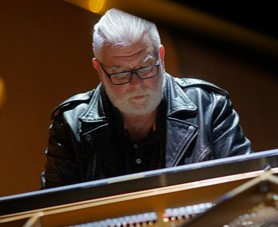About
Play Classical music through the glasses of a composer.
I, Ratko Delorko, discovered the piano as my favourite toy at the tender age of three. It took me another three years to discover the piano as a creative tool for writing my youthful compositions.
My professional background—my formative years—were shaped by studying piano, composition and conducting in Cologne, Düsseldorf and Munich.
I have had the privilege of performing in such varied venues as the Berlin Philharmonie, the Tonhalle in Düsseldorf, the Cologne Philharmonie, the Gasteig in Munich, the Philharmonie in Essen, Hamburg's Musikhalle, the Glocke in Bremen, London's St. Martin in the Fields, Paleau de la Musica in Valencia, Beijing's Concert Hall, Shanghai's Oriental Arts Center, Cairo Opera House and others.
In my beloved program, entitled “The History of the Piano,” I play compositions on 22 authentic instruments from different periods and narrate the development of the piano from its inception until the present day.
To a lesser degree my musical inclinations also include performing jazz and rock music.
Music for solo piano, piano duet, chamber music, electronic music, opera and ballet are fields in which my primary efforts are concentrated as a composer.
Currently, I lecture at the Frankfurt University of Music. In the past, I have conducted master classes and served as guest professor in Malaysia, Russia, Italy, Croatia, the US, Vietnam and China, and I continue to do so to the present day.
My book on the piano has been published by „Staccato-Verlag, Düsseldorf“.
Private Lessons / Coaching - Coaching for Diploma and Competition - Lessons for Upcoming Professionals and Enthusiasts - Long Distance Lessons Studio located in Ratingen, Germany, Full Concert Grand, Period Instruments, Video and Audio Recording Facilities. For details and appointments please call +49 172 6205349 or send an email to delorko@gmx.de

